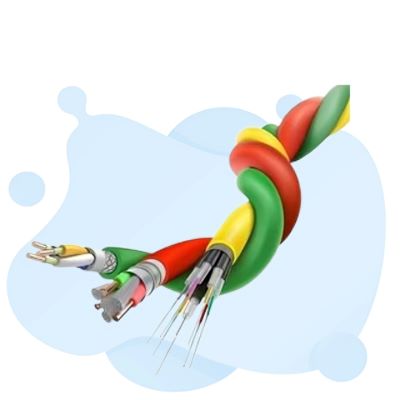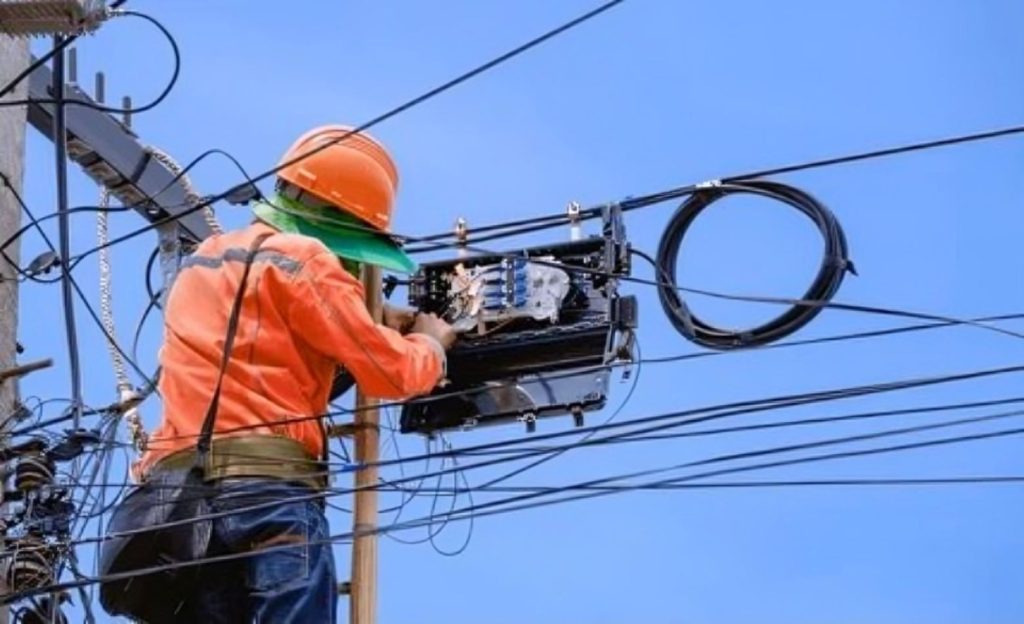Become a Certified Fiber Optic Technician Today

In today’s rapidly evolving world of telecommunications, the demand for skilled Certified Fiber Optic Technicians is at an all-time high. As fiber optic technology increasingly becomes the foundation for broadband internet, cable TV, and other essential communication services, the need for professionals who can expertly install, splice, and test fiber optic networks has never been more crucial.
The Certified Fiber Optic Technician (CFOT) certification from the Fiber Optic Association (FOA) is a recognized badge of excellence in the industry. This comprehensive training program covers a wide range of topics, including fiber optic applications, communication systems, components, cable installation, splicing, termination, and testing, equipping you with the essential knowledge and hands-on skills to excel as a fiber optic technician.
Free CFOT Practice Test Online
Key Takeaways:
- Gain in-depth understanding of fiber optic technology and its applications
- Develop proficiency in fiber optic installation, splicing, and testing
- Earn a respected industry certification recognized by employers and organizations worldwide
- Secure a rewarding career in the rapidly growing telecommunications industry
- Enjoy continuous learning opportunities and potential for career advancement
Unlocking a Rewarding Career as a Certified Fiber Optic Technician
As the world becomes increasingly dependent on high-speed and reliable internet connectivity, the demand for skilled Certified Fiber Optic Technicians continues to surge. These professionals play a vital role in the telecommunications industry, responsible for the installation, splicing, and testing of fiber optic cables that power our modern digital infrastructure.
The Demand for Fiber Optic Expertise
According to the Bureau of Labor Statistics, the employment of Fiber Optic Technicians is predicted to increase by 11% from 2019 to 2029, faster than the average for all occupations. This growth is driven by the increasing adoption of fiber-optic technology in industries such as telecommunications, healthcare, and data storage.
Job Responsibilities and Skillset
As a Certified Fiber Optic Technician, you will be responsible for a variety of tasks, including:
- Fiber optic installation: Properly installing and terminating fiber optic cables to ensure optimal signal transmission.
- Fiber optic splicing: Skillfully joining fiber optic cables to create continuous connections.
- Fiber optic testing: Conducting diagnostic tests to identify and troubleshoot any issues in the fiber optic network.
- Fiber optic maintenance: Performing regular inspections and preventive maintenance to keep the fiber optic infrastructure functioning efficiently.
To excel in this field, Certified Fiber Optic Technicians must possess a combination of technical expertise and problem-solving abilities. They must be proficient in fiber optic installation, splicing, and testing, as well as have a strong understanding of telecommunications systems and network design.
With the right training and fiber optic certification, individuals can embark on a rewarding career as a Certified Fiber Optic Technician, contributing to the growth and advancement of our digital world.
The Path to Becoming a Certified Fiber Optic Technician
Embarking on a career as a Certified Fiber Optic Technician (CFOT) presents an exciting opportunity to be part of the rapidly growing telecommunications industry. This comprehensive certification program equips individuals with the essential skills and knowledge required to excel in roles such as fiber optic installation, fiber optic splicing, fiber optic testing, and broadband technician positions.
The journey to becoming a CFOT typically involves several key steps:
- Obtain Proper Training: Aspiring Certified Fiber Optic Technicians must complete a comprehensive training program accredited by the Fiber Optic Association (FOA). These programs cover a wide range of topics, including fiber optic installation, splicing, testing, and troubleshooting.
- Earn the CFOT Certification: After successfully completing the training program, individuals must pass the CFOT certification exam, which assesses their proficiency in fiber optic technology and related best practices.
- Explore Career Opportunities: With the CFOT certification in hand, individuals can pursue a variety of career paths within the telecommunications industry, such as fiber to the home (FTTH) installation, telecommunication technician roles, and optical network technician positions.
The CFOT training program not only provides the necessary technical skills but also emphasizes the importance of safety, quality, and customer service, making graduates highly sought-after in the industry.
By embarking on the path to become a Certified Fiber Optic Technician, individuals can unlock a rewarding career that aligns with the growing demand for reliable and high-speed internet connectivity. With the right training and certification, aspiring CFOTs can contribute to the deployment and maintenance of fiber optic networks, playing a vital role in shaping the future of telecommunication infrastructure.
Certified Fiber Optic Technician: Paving the Way for Professional Growth
Becoming a Certified Fiber Optic Technician (CFOT) opens up a world of opportunities for professional growth and advancement. This dynamic field not only demands a specialized skillset but also provides ample avenues for continuous learning and career development.
Continuous Learning Opportunities
One of the hallmarks of the fiber optics industry is its rapid technological advancements. Certified Fiber Optic Technicians must stay abreast of the latest industry trends and techniques to remain competitive. This means embracing a mindset of continuous learning and skill-building through additional training and certifications.
Beyond the initial CFOT certification, professionals can explore a wide range of specialized courses and certifications, such as:
- Fiber Optic Installation and Splicing
- Fiber Optic Testing and Troubleshooting
- Advanced Fiber Optic Design and Engineering
- Structured Cabling Certification
Career Advancement and Earning Potential
As Certified Fiber Optic Technicians continue to develop their skills and expertise, they unlock a wide range of career advancement opportunities. From entry-level positions to senior-level roles, the telecommunications industry offers a diverse array of career paths for skilled professionals.
According to industry data, tower climbers in the telecommunications industry can earn an average salary ranging from $45,000 to $70,000 per year, while fiber optics technicians typically earn between $50,000 to $75,000 annually. Network engineers in the telecommunications field can expect to earn salaries ranging from $70,000 to $110,000 per year, and telecommunications sales representatives have an average salary of about $50,000 to $80,000 per year.

The growth potential for Certified Fiber Optic Technicians is further enhanced by the increasing demand for fiber optic technologies across various industries, including internet providers, medical device manufacturers, and military operations. As the world becomes more reliant on high-speed data transmission, the need for skilled fiber optic technicians will only continue to rise, paving the way for rewarding career opportunities and competitive salaries.
Conclusion
As the telecommunications industry continues to evolve, the demand for skilled Certified Fiber Optic Technicians has never been more crucial. This specialized certification equips professionals with the expertise to excel in a wide range of roles, from fiber optic installation and fiber optic splicing to fiber optic testing and network maintenance.
By obtaining the Certified Fiber Optic Technician (CFOT) certification, individuals can unlock a rewarding career path, commanding high salaries and standing out in the highly competitive telecommunications industry. The comprehensive CFOT training covers the latest advancements in fiber optic technology, ensuring that certified professionals possess the necessary knowledge and skills to excel as telecommunication technicians, broadband technicians, or optical network technicians.
As the world continues to embrace the power of fiber to the home (FTTH) technology, the opportunities for Certified Fiber Optic Technicians are abundant and promising. With their expertise and commitment to excellence, these professionals will play a pivotal role in shaping the future of high-speed internet, data transmission, and telecommunications infrastructure.
